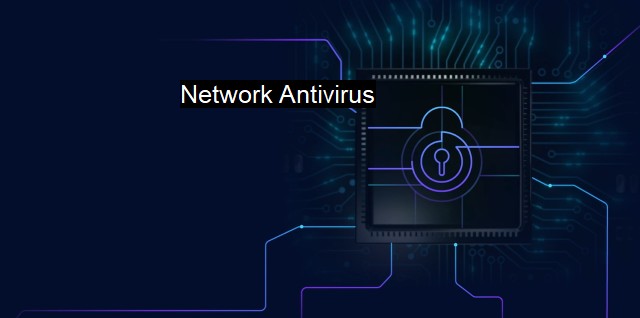What are Network Antivirus?
The Essential Guide to Network Antivirus: Defending Against Cyberattacks in a Digital World
Network antivirus is a critical component of cybersecurity infrastructure that aims to prevent, identify, and counteract the threats and potential vulnerabilities of a network system. These threats may include viruses, worms, Trojan horses, spyware, adware, and other detrimental software that could pose considerable danger to a network operating system.To understand the concept of network antivirus, it's crucial to recognize its specifics compared to the individual or end-point antivirus software. End-point antivirus software traditionally protects a single system from threats, essentially safeguarding just the system on which it is installed. On the other hand, a network antivirus is a unified solution that shields all connected devices within a particular network ecosystem from external threats.
Implemented as a cluster of software programs and applications, a network antivirus can continually monitor, scan, and safeguard various connected systems/accounts and servers in a network. It detects potentially harmful activities or software and mitigates these risks by blocking or removing them before they can propagate and severely affect the network's operations.
A well-created network antivirus is characterized by two main features. First, its ability to function automatically – it should have real-time protection that works in the background, checking every inbound and outbound data without any need for human input. The importance of automation can't be overstressed since modern malware often spreads with incredible speed. Second, regular updates – it should stay current with the latest threat intelligence and be able to counter newly-created viruses, spyware, and other forms of cyber threats efficiently.
One variation of network antivirus applications is cloud-based. Cloud-based network antivirus systems offload some of the data processing to remote servers, reducing the computational load on the individual devices and improving response time to new threats. given that they can offer comprehensive updates based on new threat intelligence from millions of other interfaces, cloud-based antivirus systems can significantly enhance the network's overall cybersecurity.
These applications function in line with several standard processes known as Threat Prevention, Detection, and Response. Prevention focuses on preemptive strategies to negate risks even before security is compromised. Deploying a threat detection mechanism identifies active threats and analyses them to help formulate an appropriate response. The response phase relates to the action undertaken by the network antivirus on identifying a visible threat.
Despite the robustness and advanced functionalities of these network antivirus software systems, they are yet not all-encompassing. In other words, other cybersecurity strategies should be complemented with network antivirus to ensure absolute cybersecurity. Firewalls, intrusion detection systems (IDS), and intrusion prevention systems (IPS), data loss prevention software, or end-user education are some examples of necessary adjuncts to these systems.
Network antivirus offers an invaluable shield for an organization, but for holistic cybersecurity, the entire organization needs to follow a level of digital hygiene. Timely software updates, strong password practices, regular backup of data, understanding email scams, are some of the wise practices to follow.
In sum, a network antivirus hugely contributes towards securing the network infrastructure by continuously detecting and combating multiple forms of potential threats. network security depends on various interconnected components. The network antivirus perceives opulent worth if it's part of a more multi-faceted, integrated approach towards cybersecurity, with the goal of proactively managing risks and ensuring that the network intrusion attempts are kept at bay.

Network Antivirus FAQs
What is a network antivirus?
A network antivirus is a type of antivirus software that is designed to protect an entire computer network from malware, viruses, and other cyber threats. It is used to scan and detect malicious files and activities on multiple devices connected to the network.What are the benefits of using a network antivirus?
A network antivirus provides several benefits, including protection against advanced persistent threats, improved endpoint security, centralized management, and reduced risk of data breaches. It also saves time and resources by scanning multiple devices simultaneously and identifying potential vulnerabilities.How does a network antivirus work?
A network antivirus works by constantly monitoring the network traffic and detecting any suspicious activity or malicious code. It uses various methods such as signature-based detection, behavior-based detection, and heuristics to identify potential threats. It also blocks connections to known malicious websites and quarantines infected files to prevent further spread.What are the best practices for using a network antivirus?
Some best practices for using a network antivirus include ensuring that all devices connected to the network have the latest software updates and patches, regularly scanning the network for malware, implementing strong passwords and user authentication, and regularly backing up important data to prevent loss in case of an attack. It is also important to educate employees on safe internet practices and to limit access to sensitive data only to authorized personnel.| | A | | | B | | | C | | | D | | | E | | | F | | | G | | | H | | | I | | | J | | | K | | | L | | | M | |
| | N | | | O | | | P | | | Q | | | R | | | S | | | T | | | U | | | V | | | W | | | X | | | Y | | | Z | |
| | 1 | | | 2 | | | 3 | | | 4 | | | 7 | | | 8 | | |||||||